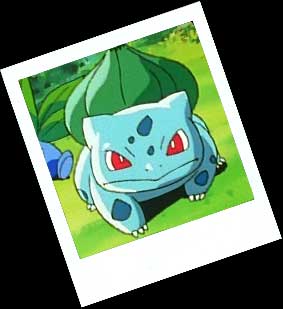|
What kind of direction do you get in these sessions? TJ: Usually it's an emotional thing. "Be more upset," "Read this more sarcastically," "Do it faster but keep the
same emotion." A lot of the direction is "faster" or "slower" because they have to match the lip flaps. But of course the
emotion may change when you read it faster or slower. The direction might be "take a half second off that." You have to,
somehow in your brain, understand what a half second is." And it's great when they have the power to re-write without having
the company that did the translation get angry. Often it only takes a very slight word change and some directors are very afraid
to do that. Anime is a strange medium because there are so many people involved - from the original Japanese author, through a
translator, a director, an engineer, and finally the voice actor.
How much contact do you have with fans of the show? TJ: I did a web chat and was surprised with how many fans are out there. We'll be in the studio late at night and
sometimes I felt like I just wanted to get it over with. But now I know who I'm doing it for. I read reviews about stuff that
I know I did badly that I would love to go back and do better.
What shows did fans want to know about in the web chat? TJ: "Photon," "Shamanic Princess." I got a lot of questions about the "Pok�mon 2" movie, which I had just done.
They asked me about things I didn't know the answers to, the evolution of "Pok�mon," things about the new characters. They
wanted to hear information that no one else would know, but I didn't have answer to questions like that. Someone asked me what
happens at the end of the third "Pok�mon" movie and was surprised I hadn't even seen the script. Most of my characters only say
their name; I didn't know what happens at the end.
So they keep the voice actors in the dark about the overall product? TJ: I'm a little bitter about the "Pok�mon" movies, actually. They pull my voice. Since my characters only say
their own name - and I'm not afraid to say this - they have a huge library of my voice on file and they can use it for other
things without paying me.
They bought the rights for that recording session and they, then, own the voice? TJ: I was in London and found a toy with my voice in it. I find toys with my voice in it all the time, but I don't
get paid for that. I'm a little bitter about that, but it's the truth and I think people should know that. They use a lot of
the original Japanese voice actors for the American series and I'm sure those actors aren't compensated for that. I know a lot
of the stuff I do goes straight to video and there's not going to be a lot of revenue generated from it. But it would have been
nice if "Pok�mon" was re-negotiated once it hit, just to keep everyone happy. There's a lot of bitterness amongst the cast for
that.
Can you relate your theater training in New York to your dubbing experiences? TJ: Well, I'm a trained singer. So, vocally, I learned to place my voice at different pitches. Also, musical
theater is more over the top than, say, television acting, which translates well to anime, for the most part. Things are
changing and even the Nickelodeon stuff is becoming more "real." Sometimes they don't want it too big, and there's a lot of
deadpan stuff going on now. But I think theater taught me to be big and not be afraid of doing that. A lot of the animation
stuff that's aimed for kids, you have to be big because it's only your voice. Theater also helped because I'm so used to doing
cold readings on auditions. And when something goes wrong on stage I have to improvise, quickly. I never get scripts in advance
for anime work. I walk in and I work cold all the time. I don't even know how things end most of the time. If I'm lucky, I get
to highlight my lines.
What anime do you like? TJ: I like the dryer stuff. The character in "Photon" is so deadpan and dry and I love that. I haven't found my
favorite yet; I haven't found one I'm passionate about. I have to check out "Cowboy Bebop" because it sounds like something
that would be really good. And I understand why "Pok�mon" was such a hit with kids. I respect what this show did. I think
there are some really cool lessons in it; it's great the way it's a story, that a kid can watch it and get hooked on the story.
And I think it's one of the most brilliant marketing schemes of all time: to incorporate a television show with a video game and
trading cards. It's a brilliant idea.
Tara Jayne has also done work for "Celebrity Deathmatch" and can currently be heard in "Pokémon 3," the number four box office draw this past weekend.  Shamanic Princess © Princess Project / Bandai Visual / Movic / Central Park Media.
Pokémon © 1997, 2000 Nintendo, CREATURES, GAME FREAK, TV Tokyo, ShoPro, JR Kikaku, Pokémon, Pikachu and all other Pokémon character names are tradmarks of Nintendo.
|